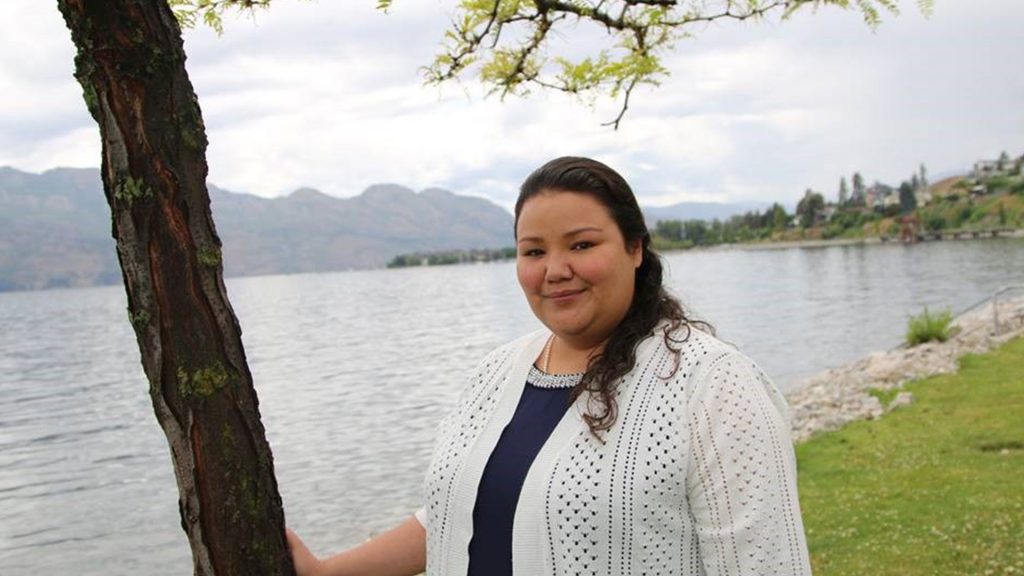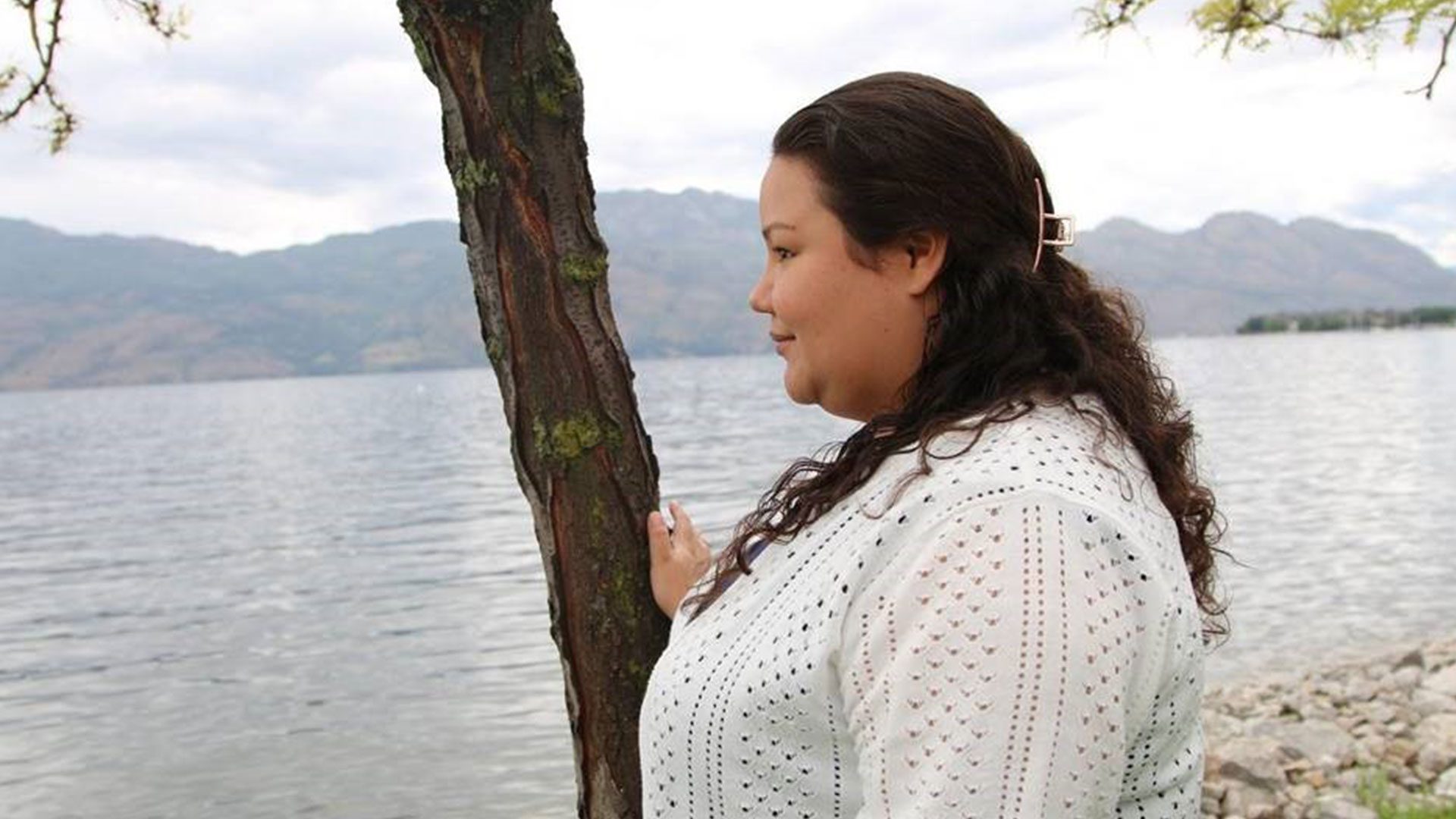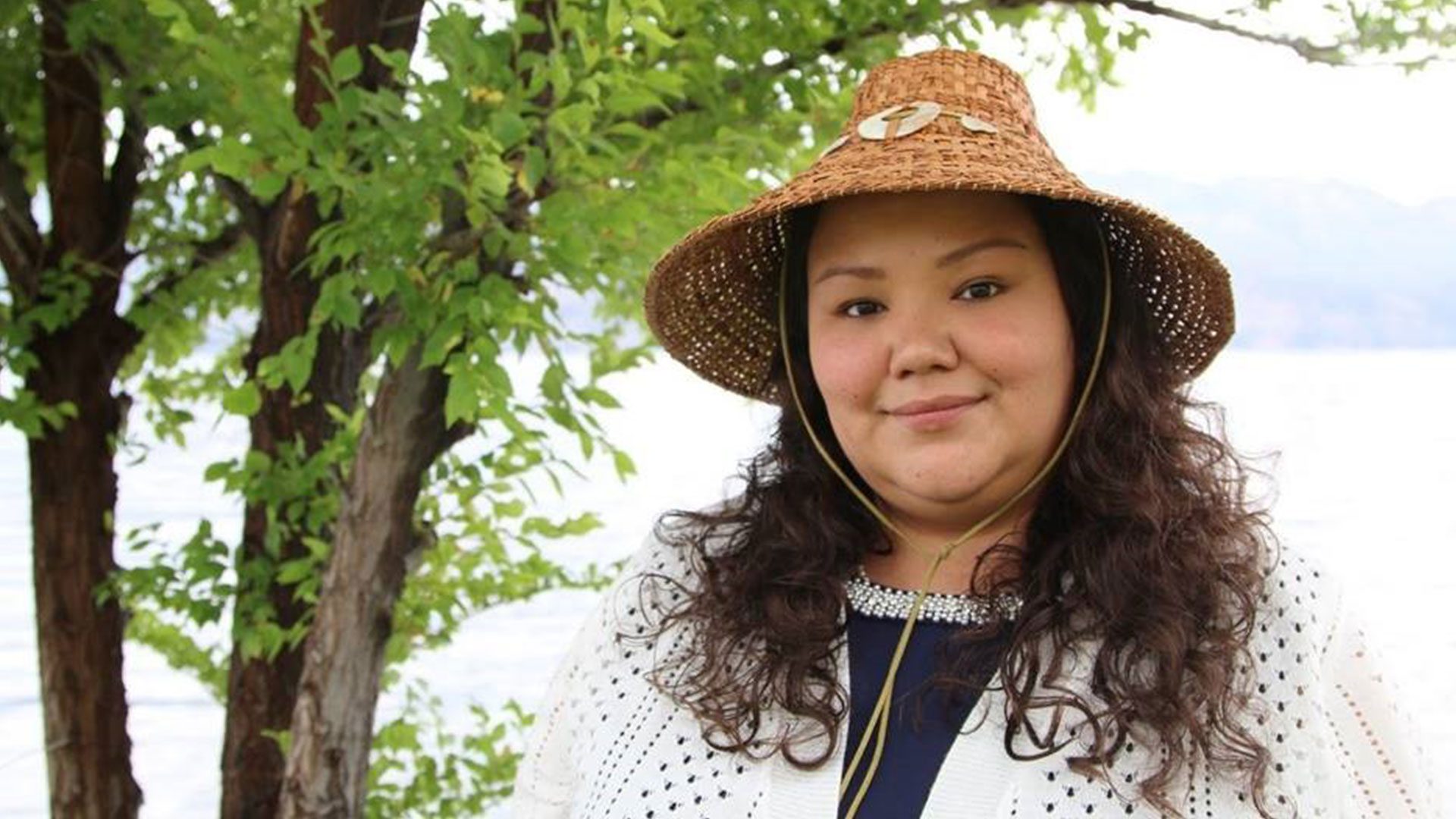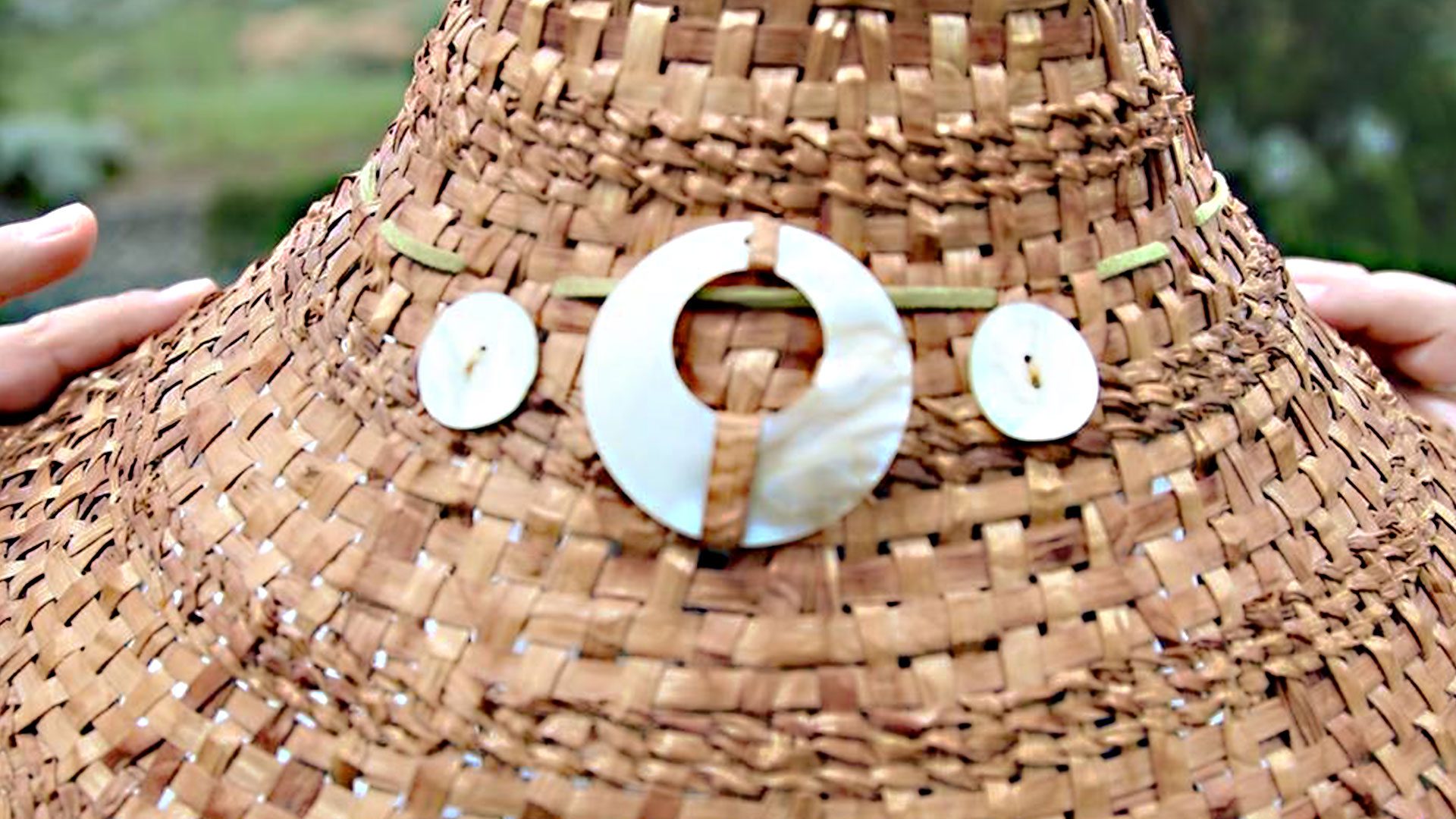
(Candice Loring standing at Okanagan Lake in West Kelowna. Athena Bonneau photo)
In May 2019, Candice Loring was at the late Dr. Gregory Younging’s funeral.
A member of Opaskwayak Cree Nation in Manitoba, he was not only a professor at the Indigenous Studies Program at the University of British Columbia Okanagan (UBCO), but a publisher of Theytus Books, the oldest Indigenous publishing house in Canada.
“I was sitting in the audience and, you know, remembering being a student and all of my aspirations of working towards the betterment of Indigenous people,” says Loring.
In that moment, Loring felt inspired to go back to the university to work with Indigenous students and professors.
“I just didn’t feel like I was really fulfilling that in my career at the time, and I left my job that week after his funeral,” she says.
Loring then phoned up Mitacs, a nonprofit organization that operates research and training programs. She called to see if the job she had been offered the winter before was still available. At the time she had declined because she felt fulfilled; that feeling had since changed.
“I followed this opportunity out of passion,” she says.
In August 2019, Loring was officially offered the first Indigenous-specific position with Mitacs. She is now the organization’s director of business development and Indigenous community engagement.

“Indigenous communities are my focus, and working with Indigenous-owned businesses and organizations or communities working with their economic development corporations,” Loring says.
When it comes to the Indigenous projects, Mitacs wants to ensure that the organization is not repeating historical wrongs.
In order to accomplish this, “the research is community-led and driven by the community or the Indigenous organization,” she says.
Research students bringing change
In fact, adds Loring, “We have an extensive network of highly skilled research students. I can bring students in from our national network across Canada.”
One of Mitacs’ internships alone is $15,000 and is four to six months long. The nonprofit funds 55 per cent and the partner organization funds 45 per cent. The research student spends half of their time with the partner organization and the other half with their academic supervisor.
“Some of the projects we do are pretty incredible,” Loring says.
This year, one of those projects comes from Melissa Tremblay. She’s a Métis woman who completed her PhD at the University of Alberta, where she is currently an assistant professor of educational psychology.
Tremblay developed Successful Families, a supportive housing program designed for young mothers to stay together with their children in safer environments. It has already shown a positive impact. So much so that Tremblay went on to win Mitacs’ first award in the Indigenous categories, for outstanding innovation.
Giving back to the community
When an Indigenous community or business has a research or innovation need they can turn to Loring and Mitacs.
For instance, an Indigenous community recently reached out to Mitacs because one of their lakes has been contaminated and they need support.
“Then we would be bringing in doctors who specialize in marine biology and then figure out how we can get the contaminants out of that lake,” Lorings says.
The different opportunities Mitacs can offer is driven by the people; if Indigenous communities have a need and are asking for something to be done, Mitacs will provide guidance.
“It’s an industry, organizational pull model in which the research is done through the lens of that partner organization,” Loring says.

Fulfilling an unattainable dream
For Loring, working to support Indigenous students and communities is meaningful.
A mother of two, Loring is a member of the Gitwangak band from the Gitxsan Nation, located in Kitwanga, B.C. She grew up in a small community with low socioeconomic status and dropped out of high school in Grade 10.
“My mom being a single mom, my sisters both struggled with addiction, drug addiction. My father was an alcoholic and there were a lot of things in my life that definitely influenced me to not try,” she says.
University became an unattainable dream for Loring. She started her family at the young age of 23, and knew she wanted to be a role model for children, encouraging them to never give up trying. Though it took her time to find that resolve.
“I talked about losing hope or losing that dream at some point, that I didn’t think I could achieve anything I wanted to,” she says.

Loring returned to school through the Aboriginal Access Studies program at UBCO in January 2012.
“I found myself in a colonial institution at UBCO, truly finding myself as an Indigenous person and learning about colonization of the mind, and understanding why I felt so disconnected to my community, into my culture,” Loring says.
Now, she says, “I wake up every day feeling blessed and grateful that I have this opportunity and to continue to help businesses with their economic stimulus through COVID-19 and post-COVID-19.
“I surely believe everyone is one choice away from changing the rest of their life.”










